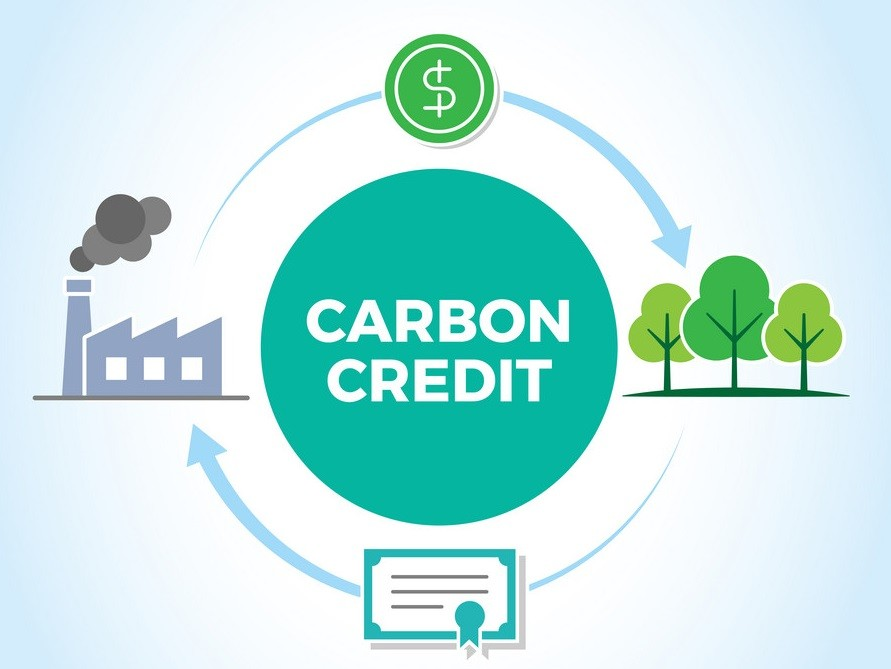Hilda Aku Asiedu: Ghana’s carbon credit pension proposal – Nsemkeka
In recent months, a controversial proposal has sparked heated debate across Ghana’s climate and governance stakeholders; the idea of using carbon credit revenues to fund pensions for retired Members of Parliament. Championed by Majority Leader Mahama Ayariga in January 2025, the plan has divided opinion. While some see it as an innovative way to ease fiscal pressures, others argue it misuses climate funds meant for broader national development.
Supporters of the proposal argue that carbon credits represent an untapped revenue stream at a time when Ghana’s economy faces significant strain. They contend that lawmakers dedicate years to public service and deserve stable retirement packages. With carbon credit earnings flowing from Ghana’s participation in global climate markets, proponents suggest that these funds could relieve budgetary stress without resorting to higher taxes or additional borrowing.
For them, the logic is simple: if the money is available, why not use it to support those who have served the nation?
However, the pushback has been swift and fierce. Environmental and youth groups, including Green Tax Youth Africa (GTYA), the Youth Climate Council Ghana (YCC), and EcoConscious Ghana, have condemned the plan, calling it a distortion of climate finance. Carbon revenues, they argue, are generated from emission reductions, forest conservation, and clean energy project initiatives meant to combat climate change, not pad the pensions of political elites.
The criticism is grounded in hard data. Ghana’s Ministry of Finance estimates the country needs between $9.3 billion and $15.5 billion by 2030 to meet its Nationally Determined Contributions (NDCs) under the Paris Agreement (UNFCCC Biennial Report, 2023). Currently, the country has only achieved 33% of its Tier 2 emission reduction target of 64,000 ktCO₂e.
Critics argue that redirecting funds from carbon finance to pensions may derail progress on pressing climate goals, like investing in flood defences, scaling renewable energy, reforestation, and green jobs.
The debate is not only about numbers; it’s also about ethics and optics. More than 80% of Ghana’s workforce operates within the informal sector, with most retirees lacking access to structured pensions. Allocating climate funds to political elites, who already benefit from existing pension schemes, could deepen social inequalities and erode public trust in governance.
On the international front, Ghana risks compromising its reputation as a climate finance leader. The country has recently secured high-profile carbon market deals, including a $1 billion agreement with the Klick Foundation and EKI Energy Services. But the credibility of such arrangements hinges on transparency and effective use of funds. Any perceived misuse could deter future investors and undermine the entire framework of carbon markets.
Proponents in Parliament argue that in the face of budgetary constraints, exploring new funding models is necessary. They see carbon credit revenue as untapped potential, and believe allocating a portion to pension schemes could set a precedent for self-reliant, sustainable budgeting.
Nonetheless, critics maintain that alternatives exist. They suggest reforming the current pension structure, improving fiscal efficiency, or cutting non-essential expenditure, without diverting climate-dedicated funds.
As climate change hits vulnerable communities hardest, smallholder farmers, coastal residents, and the urban poor, the way we use environmental funds today will shape Ghana’s future, and so this is not just a debate, but it speaks to how we prioritize sustainability, equity, and intergenerational justice
The central questions remain:
- Should carbon revenues fund political pensions, or should they serve broader environmental and social needs?
- Can Ghana meet its climate goals if these funds are redirected?
- Are there fairer ways to ensure retirement security for all Ghanaians, not just lawmakers?
These aren’t questions for Parliament alone. They demand a national dialogue, one that includes the key stakeholders. The stakes are too high for decisions to be made behind closed doors.
As petitions circulate and stakeholder pressure mounts, Ghanaians await Parliament’s next move. One thing is clear: how the country handles this issue will send a powerful message about its commitment to the planet, its people, and the principles of good governance.
As always, these are conversations worth having. What do you think? How should Ghana navigate this complex issue?

